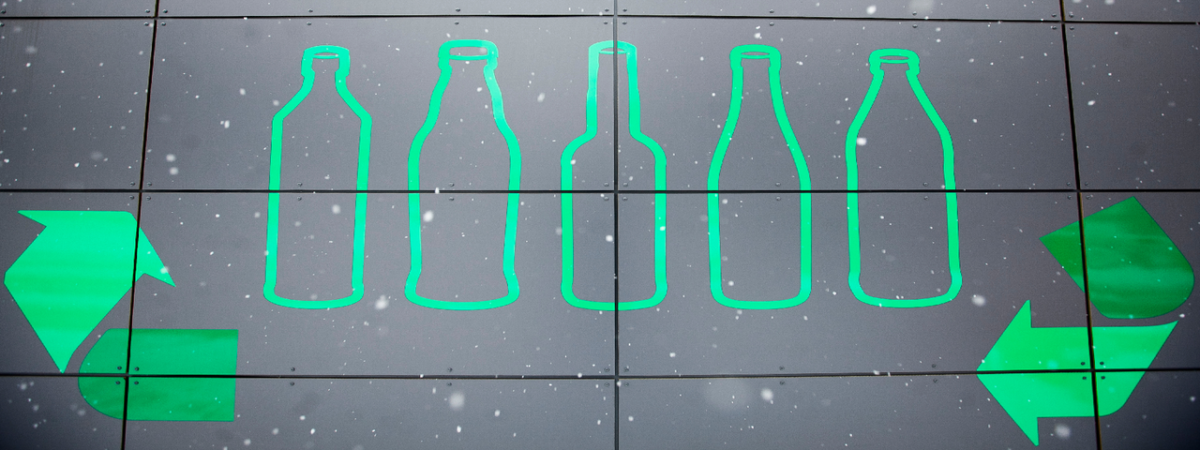Cost of government’s proposed bottle deposit return scheme largely outweighs gains
SUGGESTED

IEA research featured in The Sun

Emma Revell writes for CapX

Author of the report Christopher Snowdon finds that the DRS is expected to cost almost £1 billion to set up (and £814 million per annum thereafter) to collect recyclables worth just £37 million.
While the DRS is expected to increase recycling rates, it is unlikely to recover more than an extra 10-15 per cent of beverage containers. Whilst it would be better to recover and recycle this waste than send it to landfill, the marginal cost is excessive; a relatively small proportion of cans and bottles should not be recovered at any cost.
The government’s impact assessment puts an unfeasibly high value on the intangible benefits of a modest reduction in littering while ignoring the significant costs to consumers of collecting and returning their containers, according to the briefing.
The report shows that the benefits of the policy are outweighed by its costs. A DRS would be a loss-making inconvenience for consumers and retailers alike.
Key facts:
- According to DEFRA’s Impact Assessment, a DRS would:
- Produce recyclable materials worth £37 million
- Reduce litter clean-up costs by £50 million
- Produce ‘greenhouse gas emissions savings to society’ worth £12 million
- This produces benefits of less than £100 million, for more than £800 million of cost.
- The UK already has a comparatively high recycling rate with kerbside recycling.
- The recycling rate for plastic drink bottles is 74 per cent in the UK. Parts of the USA, Canada and Australia which have had a DRS in place for many years have recovery rates that are similar to – or lower than – the UK.
- The vast majority of the containers intended to be collected through the DRS are already being recycled via kerbside collection. Under a DRS, local authorities will lose the revenue they make from selling these materials.
Expected costs (retailers):
- The government’s impact assessment estimates that the cost in the first year will be £1,093 million, with running costs of £814 million per annum thereafter. These costs will be met by producer fees and unclaimed deposits and will ultimately fall on consumers.
- Setting up and operating the system:
- Reverse vending machines: Approximately £30,000 per machine, plus around £62,000 worth of retail space
- Storing returned containers: £17.4 million per annum cost to the retail sector
- Operating manual return service: 114 hours of extra work per small retailer per annum
Expected costs (consumers):
- Significant cost of unpaid work required of consumers to make the DRS function:
- Storage of DRS-compliant cans and bottles in their home
- Time and inconvenience of returning recyclables
- The opportunity cost of just five minutes extra labour per week, per household would equate to £1,687 million per annum (based on the median hourly income of £14.31), far outstripping the value of even the intangible benefits.
Proposals
- Unless a more robust economic case can be made for the DRS, the idea should be abandoned.
- If the government does proceed with the policy, containers larger than 500ml should be excluded as they are rarely used outside the home (and therefore will be recycled via kerbside collection).
- Glass bottles should also be excluded as they have a very low value in the recycling market and an exemption could encourage manufacturers to switch from disposable plastic to reusable glass.
- Better street bins would make out-of-home recycling easier without resorting to an expensive and inefficient deposit system.
Commenting on the report, author and Head of Lifestyle Economics at the Institute of Economic Affairs Chris Snowdon said:
“A bottle deposit scheme is a nice idea in principle, but it doesn’t make economic sense. The government’s own estimates show that it will cost over £800 million to collect recyclables worth just £37 million. It is a loss-making enterprise which consumers will ultimately pay for. In addition, everybody is going to have to start traipsing off to collection points with bottles and cans which would otherwise be recovered with a minimum of hassle through kerbside collection.
“To make the scheme appear worthwhile, the government has put an unfeasibly large figure on the value of a modest reduction in littering while totally ignoring the unpaid labour that will be expected of every household.
“Increasing recycling rates is a noble aim but it should not be done at any cost.”
Notes to editors:
For media enquiries please contact Nerissa Chesterfield, Head of Communications: nchesterfield@iea.org.uk 07791 390 268 or Emma Revell, Communications Manager: erevell@iea.org.uk 07931 698 246.
To download the IEA’s briefing “A Load of Rubbish? Introducing a Deposit Return Scheme to the UK” click here.
The mission of the Institute of Economic Affairs is to improve understanding of the fundamental institutions of a free society by analysing and expounding the role of markets in solving economic and social problems and seeks to provide analysis in order to improve the public understanding of economics.
The IEA is a registered educational charity and independent of all political parties.



